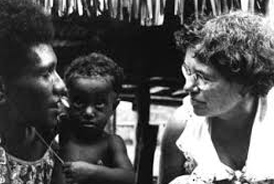by Peter Mandler: While anthropology is often thought of as the study of simple, homogeneous, so-called ‘primitive’ cultures,  from the very beginnings of its modern development it was also always concerned with the complex, highly differentiated cultures within which the discipline itself grew.
from the very beginnings of its modern development it was also always concerned with the complex, highly differentiated cultures within which the discipline itself grew.
Fieldwork, the distinctive research tool of modern anthropology, necessarily involves researchers in comparisons between simple and complex cultures after they return home, as the very first fieldworkers discovered on returning to Britain from the Torres Strait Islands in 1899. Beyond this comparative impulse, however, anthropology’s disciplinary development in the first half of the twentieth century took place in a context in which a whole range of new social sciences — including sociology, psychology, economics and political science — were bidding for public attention and funds, by offering insights and instruments to policymakers in the most developed countries, particularly during the Great Depression of the 1930s. Anthropology was not — or certainly did not intend to be — an exception.
In this article I trace the process by which Margaret Mead, the most celebrated anthropologist of the twentieth century (probably the most celebrated social scientist after Freud), came to engage with the study of what she coyly called ‘contemporary cultures’ from the 1930s to the 1950s. Although the wartime preoccupation of her intimate associates Ruth Benedict and Geoffrey Gorer with the study of Japanese culture is well known, as are parallel engagements with ‘the authoritarian personality’ in Germany and similar conceptualizations of the Russians, Mead’s own study of ‘contemporary culture’ focused at first not on an enemy but on a friend — England. In a crucial period for her own and her discipline’s development, from the late 1930s to the early 1950s, Mead’s fieldwork as well as her theoretical innovations drew overwhelmingly on the two cultures she knew best, the American …








































